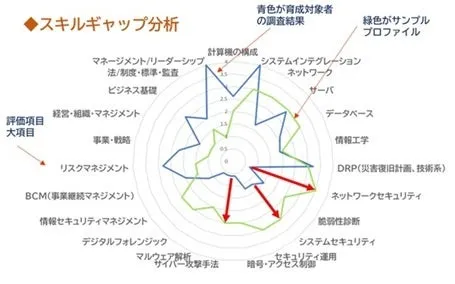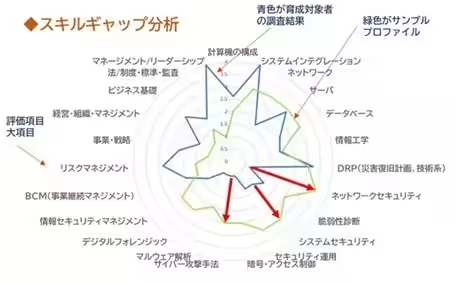

Launch of the New Security Talent Assessment Service: Meeting the Growing Cybersecurity Challenges
Launching the Security Talent Assessment Service
On July 16, 2025, CyberGym Japan (located in Minato-ku, Tokyo, led by President and CEO Norihiko Ishihara) will unveil its new Security Talent Assessment Service. This innovative offering aims to help organizations bridge the gap between their current cybersecurity capabilities and the skills needed to effectively respond to real-world cyber incidents.
Addressing the Skills Gap
Many organizations face significant challenges in developing competent cybersecurity personnel. Some of the common issues include:
- - The existence of certified security professionals who lack the skills necessary for effective incident response.
- - A lack of clarity regarding which skills are adequately fulfilled and which ones are lacking among potential candidates.
- - Uncertainty about how to educate and supplement the shortcomings in necessary skills.
In response to these challenges, CyberGym Japan’s Security Talent Assessment Service aims to provide a clear visualization of individuals' abilities to handle actual incidents, thereby identifying the disparities between existing skills and those required in a cybersecurity role. By revealing these skill gaps, the service allows organizations to create targeted training programs utilizing CyberGym Japan's existing training initiatives, leading to more focused and effective personnel development plans.
Overview of the Security Talent Assessment Service
- - Launch Date: July 16, 2025
- - Pricing: ¥300,000 (excluding tax) for a group of 5; ¥30,000 (excluding tax) for each additional individual
- - Target Audience: Any organization requiring or employing cybersecurity personnel, regardless of industry or size
Benefits of the Service
- - Accelerated Talent Development: By clearly outlining which cybersecurity skills are lacking, organizations can focus their training efforts and quickly develop competent personnel.
- - Optimized Training Costs: By concentrating investments in necessary training and reducing expenditures on overlap areas, organizations can optimize their development budgets.
- - Enhanced Incident Response Capabilities: Effective talent development translates into improved organizational capabilities to respond to incidents, minimizing potential damage during crises.
Service Implementation Process
1. Plan Creation through Hearings: Develop a skills plan based on the desired profile of personnel.
2. Assessment Execution: Visualize gaps in current skills among targeted personnel.
3. Assessment Report: Provide a development plan to address skills gaps.
4. Training Implementation: Offer training in accordance with the developed plan (the cost for training is not included in the assessment service fee).
5. Feedback: After training, provide assessment result feedback alongside effectiveness measurement tests.
Assessment Evaluation Criteria
The Security Talent Assessment Service uses the IT Skills Standards (ITSS) established by the Information-Technology Promotion Agency (IPA) to create sample profiles representing various roles. By examining the assessment results against these profiles, organizations can identify which skills require enhancement and to what extent (skill gaps). Moreover, the skill gaps can be visualized across not just individuals but also teams and entire organizations.
The Growing Need for Cybersecurity Talent
Amid the escalating global cybersecurity threats, a wide range of institutions—including government bodies, local authorities, public organizations, corporations, and hospitals—are increasingly vulnerable to cyber attacks, resulting in numerous cases of data breaches and system compromises. Alarmingly, it is estimated that Japan faces a shortfall of about 110,000 personnel capable of addressing cybersecurity challenges.
As cybersecurity awareness rises, the urgency for qualified personnel is becoming critical. There is a strong trend towards educating internal employees at basic and intermediate levels of cybersecurity knowledge to widen the talent pool capable of preventive and initial response actions.
In parallel, delegating core information system responsibilities to external specialists is rapidly expanding to ensure the security of critical systems and data.
Looking ahead, the demand from both companies and individuals seeking to acquire in-depth cybersecurity knowledge—including basic, intermediate, and advanced levels—is expected to grow significantly. CyberGym Japan aims to deliver programs that cultivate not just knowledge but actual capabilities among trainees through hands-on learning experiences on how to respond to cyber attacks.
For more information, visit: CyberGym Japan

Topics Consumer Products & Retail)










【About Using Articles】
You can freely use the title and article content by linking to the page where the article is posted.
※ Images cannot be used.
【About Links】
Links are free to use.